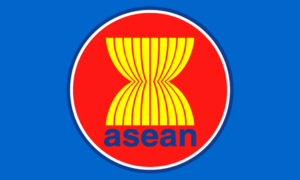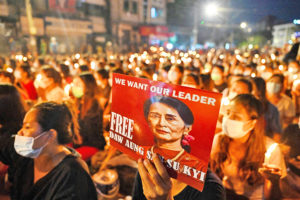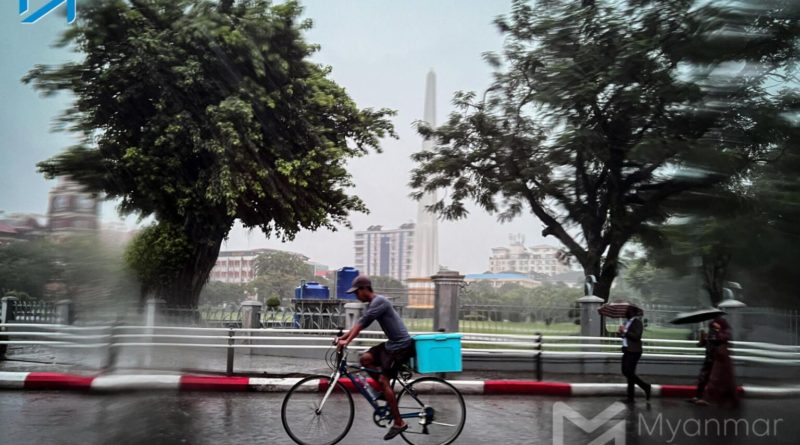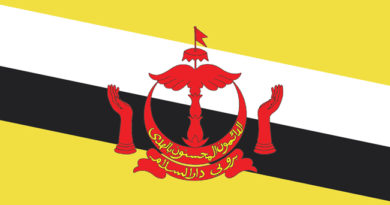ASEANEWS HEADLINE-CIVIL WAR | MYANMAR: More than 25,000 businesses have closed in Myanmar since the coup
Most companies are based in Yangon, the economic hub



FREE ASEAN – FREE MYANMAR/CAMBODIA/THAILAND – FREE Aung San Suu Kyi
.
Despite regime officials’ denials, Myanmar businesspeople said the increasing deregistration of domestic and foreign companies was largely due to worsening economic conditions in the country

The Directorate of Investment and Company Administration (DICA), Myanmar’s junta-controlled business registry, has cancelled the registrations of more than 25,000 companies since the military seized power in Myanmar three years ago.
According to DICA’s records, some 12,000 companies have been deregistered this year as of August 8, while around 6,400 companies were deregistered last year, 5,100 in 2022, and 2,200 in 2021, totalling nearly 26,000.
Companies are deregistered in DICA when they fail to file the annual return (AR), a document specifying information such as a business entity’s name, address, directors, members, subsidiaries, and share capital details.
The list of companies removed from the registry, published on August 2, included Yetagon Myanmar Energy. The company and its owner, Maung Maung Naing, are known for their connections to Aung Pyae Sone, the son of the junta chief Sen-Gen Min Aung Hlaing.
Maung Maung Naing is also a member of the Steering Committee for Purchasing Fuel Oil from Russia, organised in 2022 and headed by the junta chief’s adviser Lt-Gen Nyo Saw.
Critics of the military have alleged that Maung Maung Naing served as a front man or proxy for Min Aung Hlaing’s and Aung Pyae Sone’s business dealings, but the reasons for the removal of a company in his name may be unrelated to the broader trend of increasing deregistrations.
Instead, according to business owners who spoke to Myanmar Now, the increasing removals of companies from the registry are a sign of worsening economic conditions, diminished opportunities, and erratic policies in Myanmar under the military’s rule.
Entrepreneurs used to be able to start companies with high hopes of future success, a Yangon-based businesswoman said, but owning a company today has come to be seen as a financial liability.
“There are no business opportunities. When commerce is suffering, most people give up their businesses because they no longer want to continue operating them,” the businesswoman told Myanmar Now.
“There are costs associated with starting a company and reporting the required information on an annual return. With no opportunities remaining under present conditions, no one is willing to bear these additional costs,” she added.
Myanmar corporate law requires all companies to submit an AR through the Myanmar Companies online filing system (MyCo) within two months of the company’s founding and at least once annually for every subsequent year the company remains in business.
An official at DICA told Myanmar Now that the rising number of deregistrations is simply the result of inaction, ignorance, or neglect on the part of business owners, arguing that filing an AR is an easy and uncomplicated process.
“This is not a difficult task. They simply aren’t familiar with it. We only ask whether the company’s information is ‘up to date’ or not,” he said.
“The failure to submit annual returns is not an indication of economic conditions in the country but instead reflects whether companies care to take advantage of the legal benefits available to them,” he added.

Before the military coup in 2020, more than 50,000 domestic companies and more than 7,000 foreign companies were registered via the MyCo system. A third of those companies have since been removed.
Some companies are struggling to remain in business amid the significant depreciation of the Myanmar kyat, rising import prices, restrictions on import and export licensing, and increasingly stringent rules such as the requirement that exporters exchange their foreign revenues for Myanmar kyat at the overvalued rate set by the Central Bank of Myanmar.
“They buy our dollars at a lower rate than they’re worth, but then we have to buy raw materials needed for production at higher market prices. So large businesses will incur much greater losses over time,” said an exporter who has closed his business.
Any businessperson would choose to close down rather than continue operating at a loss, he continued, pointing out that there have also been crackdowns on business owners resulting in arrests for alleged price manipulation.
Economic development has also stalled due to widespread conflicts in many areas of the country. The World Bank’s Myanmar Economic Monitor Report, issued in June of this year, projected Myanmar’s gross domestic product would grow by only one percent in the financial year ending in 2025.
Under these conditions, 17.5 million people—equal to nearly a third of the country’s population—have fallen below the poverty line, according to the World Bank report, which also noted the decline in Myanmar’s trade with neighbouring countries like China and Thailand, the falling value of exports, and the cessation of production by Myanmar garment factories for international clothing companies.

@[email protected]


 Memento Maxima Digital Marketing
Memento Maxima Digital Marketing






